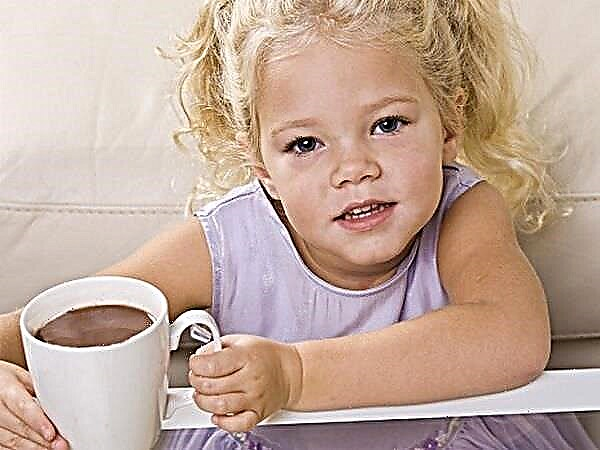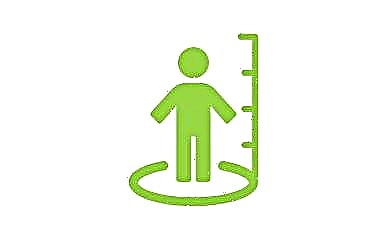Due to the high prevalence and low severity of clinical symptoms, worms in a child are not considered a serious problem, but they cause a general depletion of the body and affect the internal organs. According to statistics, every year 50% of the world's people are infected with representatives of tapeworms (cestodes), flukes (trematodes) and round parasites (nematodes). Treatment of helminths in children is prescribed by a parasitologist, the choice of medicines is determined by the type of worms, the age and condition of the baby.

Sign against parasitic diseases
Worms are parasitic worms that live in the body of people, animals, plants. They create unfavorable conditions for the assimilation of nutrients, minerals, vitamins, borrowing useful substances for their own life. Intoxication by the products secreted by them harms the liver, gastrointestinal tract, in case of complications - muscles, lungs, eyes, brain.
Where do they come from
Most likely sources of infection:
- Water. Giardia are found in running water. Home filters don't solve the problem. The use of bottled water also does not guarantee safety.
- Unwashed hands, vegetables / fruits. The risk of enterobiasis, ascariasis can be removed by taking hygiene measures.
- Animal world. Pet parasites do not pose a threat to humans. The danger of toxoplasma infection arises exclusively when an infant comes into contact with dry animal feces, traps children in the soil / sand.
Note! Doctors do not exclude the risk of transmission of worms from mother to baby during childbirth. Threats include insects, infested children, stressful travel and incomplete acclimatization.
Types of worms
There are a lot of helminths in nature. About 150 types of parasites can inhabit a child's body. The most common are pinworms, roundworms, toxocaras.
Pinworms
The disease provoked by these worms is called enterobiasis. The cause of infection is the lack of personal hygiene. Usually the eggs of small worms living in the small intestine are brought home by children. Pinworms are able to get into the brain, on the retina of the eye, provoking corresponding violations. In the small intestine, worms absorb food rich in vitamins, enzymes, and proteins.
In the morning, pinworms crawl out into the anus, lay the larvae, which remain on the bed and things for up to 6 months. This factor creates the risk of re-infection. The life cycle of the larva is 21 days; in case of reinfection, the problem will last for years.

Pinworm characteristics
Enterobiasis often begins to manifest itself with symptoms characteristic of acute respiratory infections. Children can suffer from abdominal pain, insomnia, runny nose, cough, allergies. An infected baby has an increased appetite, after a meal, the newborn is sick, stomach ache, and stool is disturbed. With abundant nutrition, the baby looks weak and lethargic. Parasites consume 60% of the energy.
Important! It is not difficult to find pinworms - it is enough to scrape the eggs of the worms.
Ascaris
Parasites 40 cm long induce ascariasis. Roundworms feed on blood (40 ml / day), live in the intestines, and sometimes penetrate into neighboring organs. The eggs of the worms ripen in the ground. When the temperature rises to 16 ° C, the larvae are activated. They get into the children's body through unwashed hands, vegetables, fruits, berries, which is why it is important to observe hygiene measures.
Ascaris is an organized form of worms endowed with the simplest mind. The male finds a female in the intestines, the female lays eggs, the baby is emptied, the eggs penetrate the ground with feces.
Roundworms live for 1.5 years. In the absence of a new sharing, children are considered cured, but they lose enough health. Round pink worms in infants explain the symptoms of anemia, cholecystitis, hepatitis, pancreatitis.
Toksokara
Canine roundworm is constantly moving through the body, causing disorders of the eyes, joints, heart, and brain. The needs of the white worm correspond to the needs of human cells - the parasite receives cellular nutrition, the remains go to the newborn baby. Signs of toxocara are determined by the location of the worm, the manifestation of a cold, heart failure, schizophrenia is possible. Skin scraping, enzyme-linked immunosorbent assay (ELISA) for toxocara antigen help to detect the pest.

Toxocariasis
Infection symptoms
Symptoms of worms in a child are manifested by conjunctivitis, cough, headache, swelling, tremors of the extremities. The signs of parasitism depend on which organ is damaged in the child. For most children, helminthiasis threatens with a delay in physical and intellectual development. Pronounced vitamin deficiency is accompanied by joint pain, hair loss, and flaking nails.
Itching
After a certain time, the human body is poisoned by products processed by worms. Patients suffer from abdominal pain, diarrhea, constipation, anal itching. The negative effect of worms is also a violation of immunity.
Pale skin color
Painful pallor, weight loss with parasitic diseases may not always appear. The likelihood of a change in appearance when infected with worms is determined by the characteristics of the child's body, the type of worms, the degree and duration of the invasion, and other factors.
The result of the vital activity in the body of worms is also acne, urticaria, rash, eczema. Negative consequences are provoked by a violation of the intestinal microflora, occur as the mucous membrane worms are irritated.
Weakness and tiredness
Worms in the body disrupt the assimilation of useful micro and macro elements. The child does not have enough substances important for normal life. The kid feels constant weakness, apathy, depression, memory and concentration deteriorate.
Frequent constipation, diarrhea
Diarrhea during helminthic invasion develops infrequently. Constipation is more common in parasitic diseases. The worms consume most of the digested food, and less feces are produced.
It is important to understand! Most types of helminths secrete substances that suppress the peristaltic activity of the intestines, constipation is a very predictable phenomenon.
The presence of parasites in the feces
The presence of parasites in the feces is the main symptom of helminthiasis. The fecal masses of children may contain worms digested with food, individual fragments of worms, whole adults. It will not be possible to determine the type of worms in the feces of a child with the naked eye.
Important! Large eggs, larvae, adults can be recognized at 10x magnification.

Worms in feces
Allergic reactions
The toxic waste products of worms provoke the body's immune response by producing eosinophils. Defense cells inflame the tissues of the body, provoking an allergic reaction.
Healing activities
The arsenal of drugs for the treatment of helminths is quite wide: children are shown chemotherapy, herbal medicine, homeopathic medicines, ozone therapy. A gastroenterologist or an infectious disease specialist is taken to cure parasites, some remedies have indications and contraindications for use.
Stages of treatment for worms:
- The body is prepared for the elimination of helminths. The procedure is carried out with drugs that protect liver cells from damage, and laxatives that utilize the waste products of parasites.
- The doctor prescribes anthelmintic drugs of a narrow and wide spectrum of action.
- Measures are being taken to restore the functions of the gastrointestinal tract, liver, kidneys, lungs, increase immunity, and normalize metabolic processes. The restoration of stable liver function is of particular importance. Traditional methods of treating milk thistle and artichoke help well.
If treatment with anthelmintic drugs is prohibited, of particular interest is the anthelmintic effect of herbs: immortelle, elecampane, valerian, oregano, calendula, garlic.
Important! If you suspect a baby is infected with parasites, you should definitely consult a doctor, it is forbidden to self-medicate.
The diagnosis is confirmed by a study of feces for eggs of worms, a blood test in the SES. If the analysis of feces did not confirm the content of eggs of worms, but according to clinical data, the probability of infection is high, then the child undergoes repeated studies to find out about the content of parasites in the body.
Anthelmintic agents are classified into three groups, according to the class of helminths: for the treatment of nematodes, cestodes, trematodes. Most doctors recommend removing worms with Levamisole, Albendazole, Pirantel, Medamin, Praziquantel, Diethylcarbamazine.

Worm remedy
There is no universal remedy for parasites, depending on the etiology, the doctor prescribes an effective course of treatment:
- Effective anti-nematodic agents ("Vermox", "Pirantel", "Piperazine adipate") aimed at the destruction of roundworms.
- Broad-spectrum anthelmintic tablets (Dekaris, Helmintoks, Vormil) are also well tolerated by the child's body.
- Anti-cesto drugs (such as Praziquantel) and pumpkin seeds can help get rid of flat parasites.
Important! Prescribing anthelmintic drugs to children, the doctor prescribes the simultaneous intake of probiotics, enterosorbents, antiallergic drugs, vitamin B 12, folic acid, iron, hepatoprotectors, and enzyme agents.
Tablets destroy worms, antihistamines prevent allergies to dying worms (paste antidotes remove their waste products from the body). Vitamin B12, F and iron solve the problem of anemia - worms help to reduce the level of hemoglobin or erythrocytes. Hepatoprotectors protect the liver, enzymes stabilize the digestive system, probiotics improve the intestinal microflora.
Prevention of infection in kindergarten
Dr. Komarovsky warns: the responsibility for the prevention of worms falls on kindergarten workers, parents, children. The staff of the institution observes sanitary standards when preparing food in canteens and monitors the cleanliness of the premises. Medical control remains mandatory, preventing the development of the epidemic. For helminthic invasions, stool analysis is performed regularly to help check and identify the problem.
Parents cannot constantly monitor the health of their children. Children should be taught to observe the required hygiene measures, and useful recommendations should be given in advance:
- Wash your hands thoroughly with soap, check your nails. The soil and sand contain helminth eggs that fall on the hands, then in food.
- Wash vegetables and fruits. Doctors advise pouring boiling water over greens and roots.
- Do not drink raw water from wells and springs. Before use, the liquid must be boiled for 20 minutes.
- Do not go to polluted water bodies.
- Do not eat raw meat and fish. Lack of heat treatment of food is the main cause of childhood parasitic diseases.
- Monitor the health of pets. Regularly carry out prophylaxis, treat helminthic invasions.

The child is being examined in kindergarten
Not all worms are immediately active - many worms are often in a "dormant" state for years. Regular check-ups of children are essential to get them out of the body in a timely manner.



